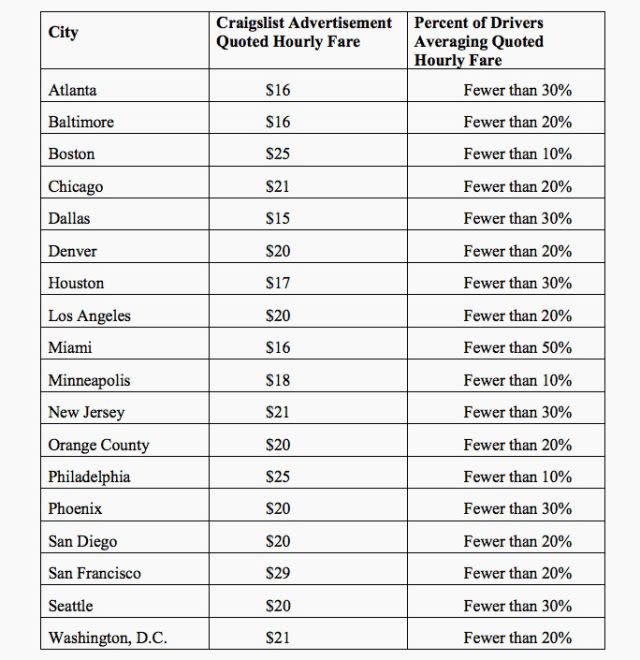Uber owes $20 million for greatly exaggerating how much its drivers really make

Remember when Uber said its “median driver” in New York made more than $90,000 a year, and then couldn’t find a single one who did? Yeah, they’re paying for that now.
The ride-sharing company will pay the Federal Trade Commission $20 million to settle charges that it misled people over how much they could earn driving. Uber is also settling an FTC claim that its vehicle-financing programs, designed to make cars available to people who need them, were not in fact the “best financing options available.”
By settling, Uber has not explicitly admitted to any of the FTC’s allegations. But the evidence against the company is compelling. For years, the company exaggerated and obfuscated how much its drivers really earned, in part by quoting rates that ignored the significant out-of-pocket costs borne by independent contractors, such as gas, insurance, and vehicle maintenance.
The most egregious example of this was in New York, where in May 2014 Uber claimed its drivers were earning a median annual income of $90,766. (The blog post seems to have been removed from Uber’s site, but you can view a copy here, courtesy of Internet Archive.) Uber lured prospective drivers with this promise even as it cut rates in the city by 20%, a bid to make its service “cheaper than a New York City taxi.” In San Francisco, Uber said its median driver was making $74,000.
According to the FTC, the median Uber driver in New York around that time was actually earning about $62,000, and the median driver in San Francisco $53,000. That’s not bad money, but it’s a far cry from what the company advertised. The FTC also concluded that fewer than 10% of drivers in New York and San Francisco were earning Uber’s stated rates. The agency found a similar trend by analyzing the hourly rates Uber quoted to drivers on Craigslist in 14 other cities in December 2014:

“In many instances, Drivers have not made the promised amounts even when factoring in non-hourly earnings, such as payments for time-limited promotions and other incentives,” the FTC complaint reads.
In a second charge, the FTC accused Uber of signing thousands of drivers into auto-financing arrangements that were not as good as they seemed. Specifically, the agency alleged that Uber told drivers they could “own a car for as little as $20/day” ($140/week) or lease one for “as low as $17 per day” ($119/week) through programs that actually required median weekly payments of $160 and $200, respectively. Leases Uber advertised as having unlimited mileage in reality carried mileage restrictions. The complaint also includes this damning claim: “Uber’s communications with at least one auto company have acknowledged payment terms and conditions that are inconsistent with Uber’s promises to Drivers.”
Uber said in a statement that it is “pleased to have reached an agreement with the FTC.”
While Uber’s massive scale has made it the poster child for the gig economy—and the most obvious target of the FTC’s ire—other startups that rely on independent contractors are likely guilty of similar violations. Many of these companies recruit heavily from Craigslist, and advertising the top earning rate is a common strategy. In this recent ad on Craigslist, for example, cleaning startup Handy says the job pays “up to $1000/week.” Or try this one from delivery startup Postmates, which declares in all-caps, “EARN UP TO $25/HR.”
As part of its settlement, the FTC has banned Uber from misrepresenting drivers’ earnings or the terms of its auto-financing programs. The FTC has also ordered Uber to keep records of “all Driver complaints relating to Driver earnings or the Vehicle Program” and any responses. It seems for Uber, driverless cars can’t come soon enough.

Sign up for the Quartz Daily Brief, our free daily newsletter with the world’s most important and interesting news.
More stories from Quartz:

 Yahoo Finance
Yahoo Finance 